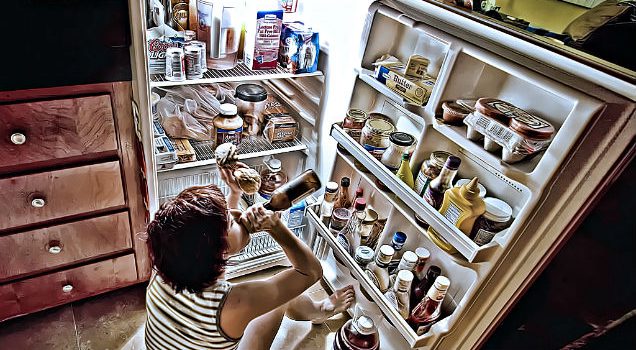The Roller Coaster of Emotional Eating

If all your life you’ve held the belief that weight loss and thinness are simply a matter of willpower, good genes and just the right exercise regimen, you might be in for a surprise. Doctor Joel Young suggests that for many people food can serve as a coping mechanism, and chances are, you’ve probably already heard of “emotional eating”… but thought it wasn’t that big of a deal. It is.
You may not even recognize it’s happening in your own life, especially if your weight is in the norm, but emotional eating is a thing and it’s on the rise worldwide, considering the growing numbers of obesity. It’s also worth noting that we do not participate equally in emotional eating, just like we don’t handle our emotions the same. So maybe you need a chocolate bar when you’re feeling down or maybe you feel nauseous and can’t even look at food; maybe you deal with heartbreak and loss by ordering pizza and bottling up the tears or maybe you keep a diary and aspire to be in tune with your feelings.
Search for clinical trials for eating disorders HERE.
Maybe you do all of this depending on the day and circumstances – we’re complex like that. Regardless of your appearance however, you can use some info on the topic, since understanding the beliefs and emotions behind binge eating and weight-gain can improve your relationship with food, which in turn can affect your overall health, even if your weight stays more or less the same.
Pure carbs instead of pure happiness
A good question to ask whenever you suspect you’re not all that hungry but just can’t seem to get ice cream off your mind, is “What is this food giving me?”. Most cravings are “fast” carbs – things like chocolate, cake, pizza, pasta. Sadly, we rarely crave a nice big salad. But what are carbs giving us? Well, apart from increased secretion of the “happiness hormone” – energy. So carbs make us superficially happy and also more energetic. It makes sense that we reach for the chocolate bar when we’re upset or lethargic.
But, still, why? Why do you need it to an excess, if you’re already getting plenty of “good” carbs with everything else you eat? You might have already considered the happiness part – you don’t get enough happiness from your daily activities/ relationships/ hobbies/ job/ your lifestyle feels unfulfilling and this lack of satisfaction seems permanent because you’re too scared to make a big change. Many people addicted to carbs are probably going through something very similar to depression – they feel unhappy and unfulfilled, but are petrified with the idea of doing something “radical”, so they feel trapped into a less-than-ideal life.
Still though, why energy, what could we possibly need all this excess energy for, ultimately stored as fat? Well, fatigue and lack of energy and motivation are key symptoms of depression, but you might want to reevaluate your belief system as well: many people who use carbs as a coping mechanism operate under the deeply held belief that life is harder than it actually is, which tricks their bodies into “thinking” they need more energy than they actually do. If you recognize yourself in this description, try considering this instead: not everything in life is or should be a fight to win, let go from time to time and allow things to come to you the easy way.
If by now you’re thinking “That doesn’t apply to me – I hate junk food and still gain weight!”, you might have a problem with overeating. I have this friend who eats extra healthy – fruit and veggies, nuts and whole wheats, and still struggles with her weight. The thing is, even healthy foods have calories and you might be exceeding your optimal caloric limit. If you’ve ever caught yourself compulsively reaching for the bowl of cashews next to you without being hungry or even feeling the taste, you probably engage in binge eating… and not only when it comes to food.
You might be familiar with the feeling that you’re literally a “bottomless pit” and nothing is ever enough – food, love, affection, success, excitement. If this is the case, you’ll have to learn to be content with what you already have. It doesn’t mean you should settle for less than what you want but until you know how to appreciate the little things in life, as cliché as it may sound, nothing will ever live up to your expectations – and you won’t live up to your expectations either. So savor that one slice of pizza, that one small achievement, that one exceptional date you went on that never turned into something “more”.
Don’t stop wanting “more” – just stop expecting it and focus on what you have and what you can do right now.
An article by Nelly Katsarova
*If you too struggle with food control, there might be a new solution under tests. Have a look at all of your options HERE.

